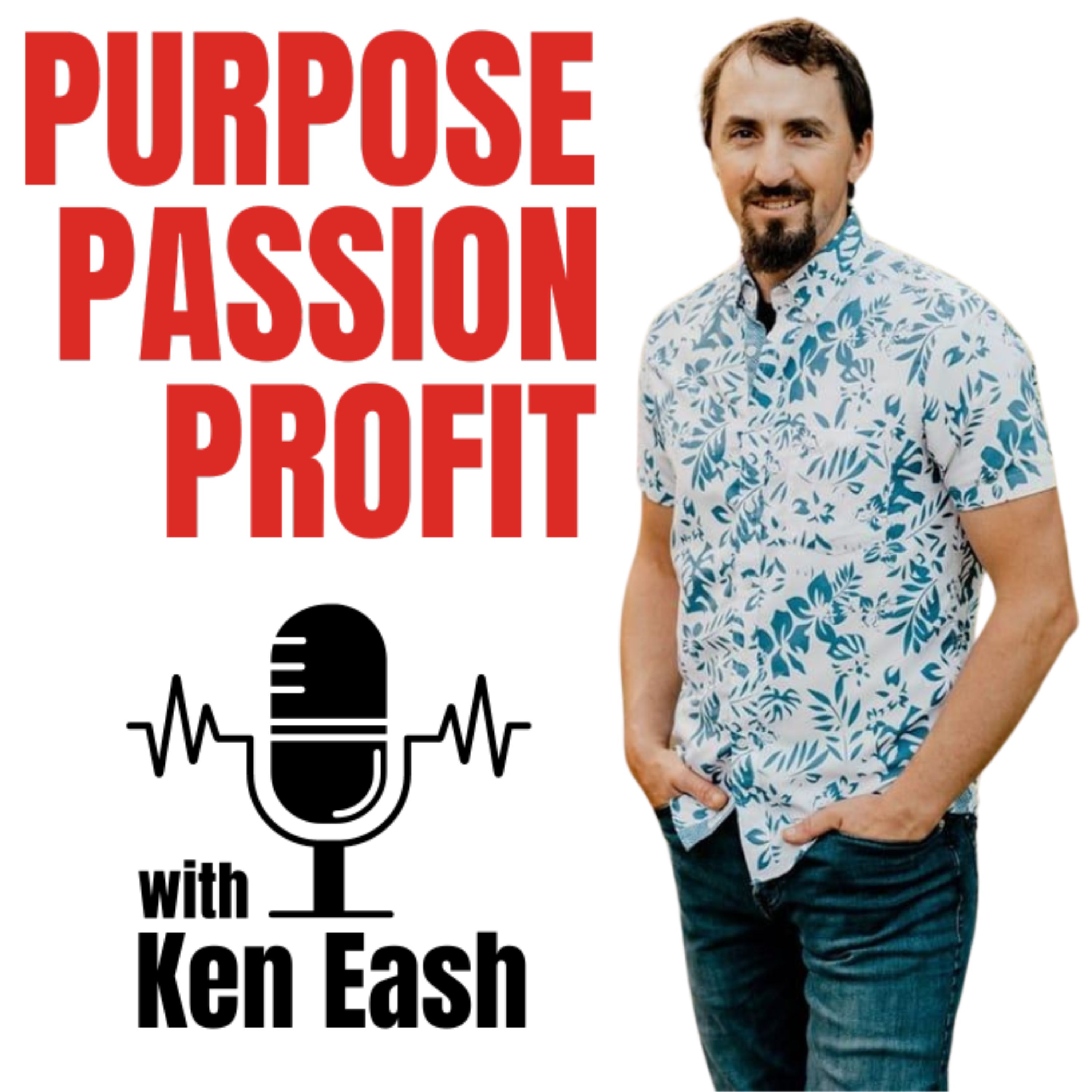Episode 319
Pillar #3: Killing Your Distractions
Today we’re diving into pillar number three of becoming a productive entrepreneur:
Killing your distractions.
We’ve previously discussed the importance of prioritizing systems over goals and the benefits of being an early riser. Today, we tackle a challenge we all face—distractions that hamper our productivity. From incessant notifications to social media black holes, distractions are productivity killers. But don’t worry; I’ve got five solid tips to help you stay focused and achieve more. In this episode, we’ll explore how planning the night before, cutting out social media, creating boundaries, establishing a productive workspace, and incorporating play into your day can dramatically boost your efficiency. Stay tuned to learn how to regain control of your time and accomplish what truly matters. Let’s get started!
Transcript
Alright. Today, we've got pillar number 3,
Speaker:the productive entrepreneur. We've already talked about
Speaker:pillars number 1 and 2 which are systems
Speaker:over goals and the early bird gets the
Speaker:worm. You can go back and listen to the last couple days of those
Speaker:Tuesday and Wednesday for those
Speaker:episodes. Today, we're talking about pillar number 3,
Speaker:killing your distractions. We all know the
Speaker:feeling. You've just getting setting out, buckling down,
Speaker:and starting to cross things off your to do list. And let's face it. We've
Speaker:all got to do lists 15 miles long, and they
Speaker:just keep growing. But today, you're finally in the
Speaker:right mindset and you're ready to take off getting stuff done.
Speaker:Geared up to knock out that list because,
Speaker:like, we need that feeling of relief and satisfaction that
Speaker:we're gonna get at the end of a full and productive day. Next thing
Speaker:you know, the phone buzzes a text message. Then the
Speaker:laptop dings. It's a new email. Your phone lights up with a
Speaker:Slack message. Somebody walks into your office and asks a
Speaker:question. Your phone rings again. It's not a work related
Speaker:call. You need a cup of coffee. Gotta go to
Speaker:the bathroom. You're starting to get hungry. Before you know
Speaker:it, the whole morning is gone and you really don't have anything
Speaker:done to show for the time you've put into the morning.
Speaker:Unfortunately, distractions are one of the main killers of productivity.
Speaker:We've got so many things coming at us on a day to day basis,
Speaker:minute to minute basis. So many things that are trying to
Speaker:steal our focus and prevent us from doing what truly
Speaker:matters. And while we're busy taking care of those
Speaker:distractions, we're not getting anything done. So
Speaker:how can we eliminate the distractions and keep after the most
Speaker:important stuff? I've got 5 tips for you to,
Speaker:help get rid of distractions of distractions
Speaker:and keep you on track. Number 1
Speaker:is to lay out your plans the night before. Making
Speaker:plans the day before is really helpful in helping you to
Speaker:stay focused the next day. You don't have to plan out
Speaker:every single little thing, but making choices
Speaker:about simple things that might be distractions during the day. So
Speaker:for 1, you could choose what you'll wear the next day. You could choose
Speaker:what you'll eat for lunch or where you'll eat for lunch. You can choose how
Speaker:you'll go about getting to work, maybe the route you'll take. You
Speaker:can make so many decisions the night
Speaker:before that will take away from the
Speaker:decision distraction on the morning of. Because when you're tired in
Speaker:the morning, decisions are harder to make and they can take
Speaker:up too much of our thought process. It's little things.
Speaker:Like in the book Atomic Habits, he talks about that Making
Speaker:as much as you can in your life habit and good habit
Speaker:so that you don't have to think about it and use up that brain space.
Speaker:You can also set a rough schedule for yourself. So you you
Speaker:might decide that you're not gonna check your email or answer your text messages until
Speaker:you've completed at least 2 important tasks. So between 8 and 10
Speaker:AM, buckle down and focus on the work. Put your phone
Speaker:in the other room. Put your laptop or your computer on do not disturb
Speaker:mode. Whatever you gotta do. If you're out on the job site, leave your
Speaker:phone in the truck. Whatever it is you need to do, make so
Speaker:no distractions can be anywhere around you.
Speaker:And then that that will help you to
Speaker:stay focused on the work. Number 2 is to cut out social
Speaker:media. There is it's been estimated that people
Speaker:spend an average of about 2 and a half hours a day on
Speaker:social media. Now, it's great if you're
Speaker:actually dealing with customers,
Speaker:but most people are not. It's a productivity
Speaker:killer. K. Social media might be necessary for some
Speaker:businesses to make sales. But when you're constantly checking notifications,
Speaker:you're taking time to respond to the Karen on
Speaker:the Internet who is posting stupid stuff, you're endlessly scrolling
Speaker:pictures on Instagram, watching TikToks or whatever it is.
Speaker:Those things do not help your business. K. Social media is
Speaker:a black hole and it is a major time suck.
Speaker:So kick that to the curb. Set a time slot for
Speaker:yourself to do social media. Between 11
Speaker:AM and 11:30, I'll do all my social media for the day
Speaker:or whatever it is you gotta do. Turn off all biz
Speaker:nonbusiness related notifications during
Speaker:business hours so that you don't get distracted.
Speaker:Number 3 is to create boundaries. In any given workday, you've
Speaker:gotta take important calls, and there may be some line of
Speaker:communications that are necessary to your workday, but there's others
Speaker:that aren't necessary that you can set to the side. So give
Speaker:yourself periods during your day when you don't need to check
Speaker:your phone, your emails, your Slack messages, any of
Speaker:that. It can be the early portion of the morning that a lot of
Speaker:entrepreneurs do, like, set aside
Speaker:between 6 and 8 AM where you get your productive work
Speaker:done and then go from 8 to 10 and do your
Speaker:emails,
Speaker:and that and that helps you to stay more productive. That way
Speaker:you're not bouncing back and forth. Choose the rhythm that works best for
Speaker:you, but make sure you stick to it. So
Speaker:hard to do. I know it is. Tip number 4
Speaker:is create a productive space. So if you're working at
Speaker:home or in an office, you need a place where you
Speaker:can feel productive because productivity produces
Speaker:productivity. So in other words, if you tend to be productive
Speaker:in a particular space, your brain will automatically
Speaker:be productive when it gets in that space again. You associate that
Speaker:space with productivity, and you're able to keep coming back to that and
Speaker:be more productive. So the couch is used for
Speaker:entertainment. So don't sit there to do your work and make your calls. The
Speaker:bed is used for sleeping. Don't don't go
Speaker:take phone calls there or send work messages.
Speaker:Keep things in their place. Don't try to do your
Speaker:work on your couch or at the kitchen table because then
Speaker:when you sit down to do those things, you'll think that you
Speaker:need to work. It's hard to separate the work and the personal. So
Speaker:keep those productivity spaces for productivity and have a
Speaker:place that you can be productive and
Speaker:not do other things. And then when you leave that productive
Speaker:space, you can leave the work behind and go
Speaker:do those other things. Number 5, last of
Speaker:all, it can't all be work.
Speaker:Now, there's a few successful people who can
Speaker:just truly be all work and no play, but most of us are not
Speaker:geared that way. And we're not meant to be geared that way.
Speaker:Okay? So many people understand that it is
Speaker:super important to take time to play. And it's also easy
Speaker:to forget that. And there's a
Speaker:psychiatrist, Stuart Brown, who wrote a book called Play, How
Speaker:It Shapes the Brain, Opens the Imagination, and Invigorates the Soul, he wrote
Speaker:that the truth is that play seems to be one of the most
Speaker:advanced methods nature has invented to allow a complex blame
Speaker:brain, not blame, to create itself. Play
Speaker:opens up a person for creativity and it takes off our heavy
Speaker:workload. Even some workplaces like Google have
Speaker:built areas at Google headquarters for people
Speaker:to play in, for people to be creative in, to have their
Speaker:own creative space. Those places
Speaker:relieve stress which raises your productivity
Speaker:levels even further. Doctor Brown said also
Speaker:in his book, there is a kind of magic in play.
Speaker:What might seem like a frivolous or even childish pursuit is
Speaker:ultimately beneficial. It's paradoxical that a little bit of
Speaker:nonproductive activity can make one enormously more
Speaker:productive and invigorated in other aspects of
Speaker:life. So incorporate these five things
Speaker:into killing your distractions and you will be more
Speaker:productive. Too long, didn't listen, make
Speaker:plans the night before, cut out social media, create
Speaker:boundaries, create a productive workspace, and don't make
Speaker:everything all work all the time. You
Speaker:got this. Do good work.



